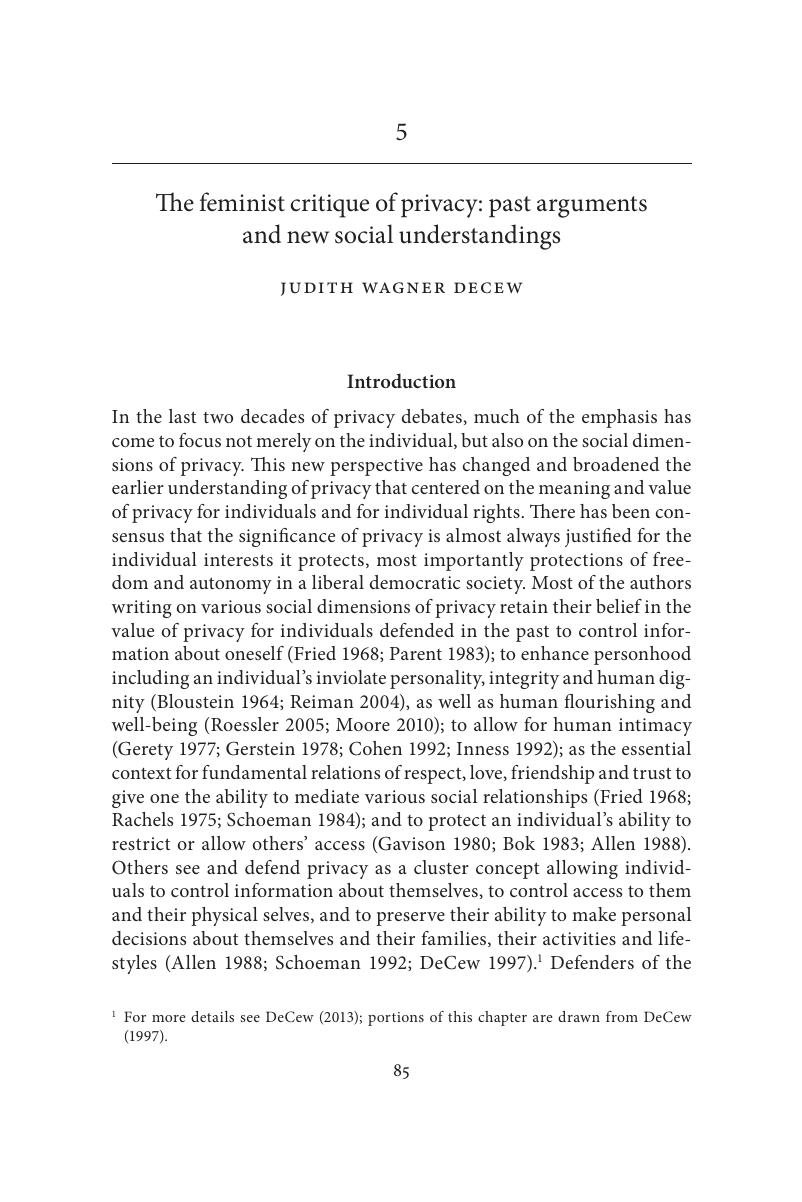Book contents
- Half title page
- Title page
- Copyright page
- Contents
- Contributors
- Book part
- Glossary
- Table of cases
- Table of statutes
- Introduction
- Part I The social dimensions of privacy
- Part II Privacy: practical controversies
- 5 The feminist critique of privacy: past arguments and new social understandings
- 6 Privacy in the family
- 7 How to do things with personal big biodata
- 8 Should personal data be a tradable good? On the moral limits of markets in privacy
- 9 Privacy, democracy and freedom of expression
- 10 How much privacy for public officials?
- 11 Privacy, surveillance, and the democratic potential of the social Web
- Part III Issues in privacy regulation
- Index
- References
5 - The feminist critique of privacy: past arguments and new social understandings
from Part II - Privacy: practical controversies
Published online by Cambridge University Press: 05 July 2015
- Half title page
- Title page
- Copyright page
- Contents
- Contributors
- Book part
- Glossary
- Table of cases
- Table of statutes
- Introduction
- Part I The social dimensions of privacy
- Part II Privacy: practical controversies
- 5 The feminist critique of privacy: past arguments and new social understandings
- 6 Privacy in the family
- 7 How to do things with personal big biodata
- 8 Should personal data be a tradable good? On the moral limits of markets in privacy
- 9 Privacy, democracy and freedom of expression
- 10 How much privacy for public officials?
- 11 Privacy, surveillance, and the democratic potential of the social Web
- Part III Issues in privacy regulation
- Index
- References
Summary

- Type
- Chapter
- Information
- Social Dimensions of PrivacyInterdisciplinary Perspectives, pp. 85 - 103Publisher: Cambridge University PressPrint publication year: 2015
References
- 14
- Cited by

